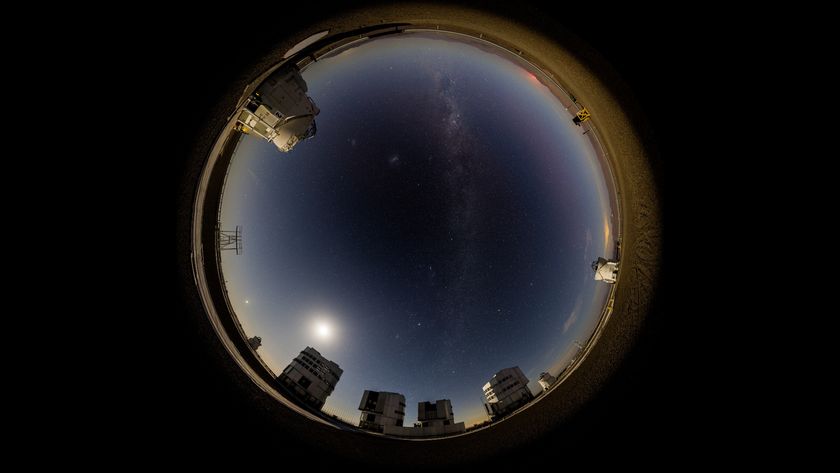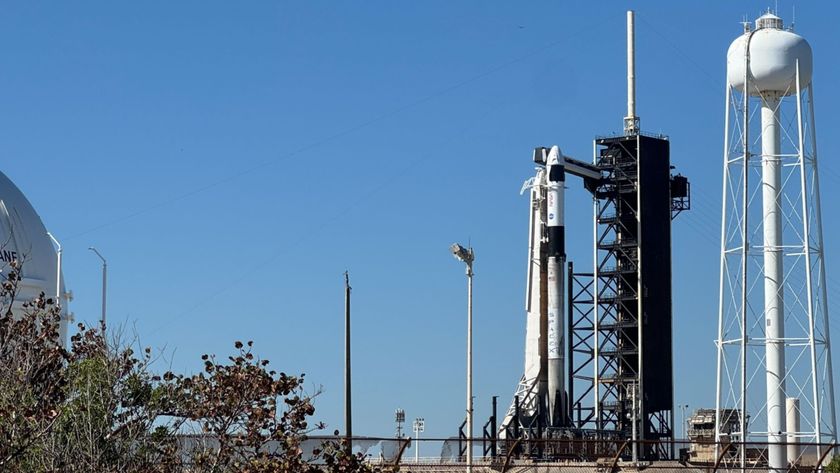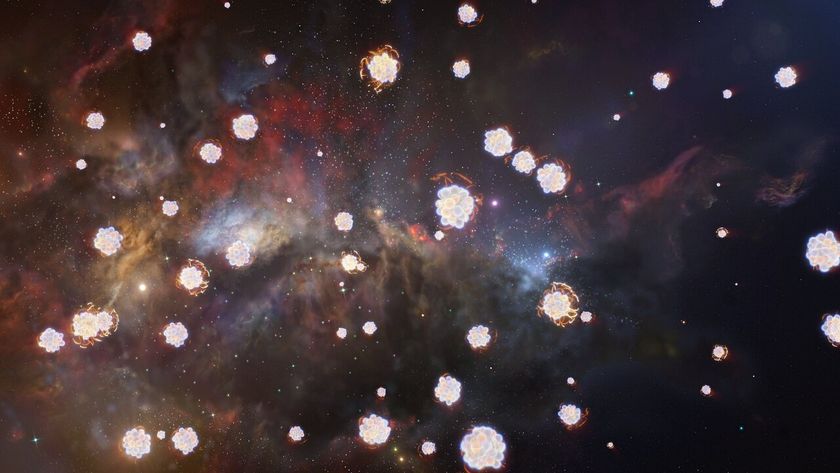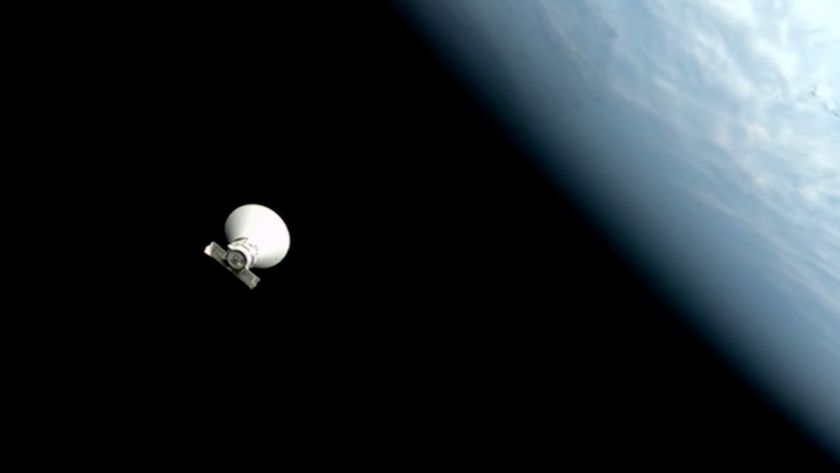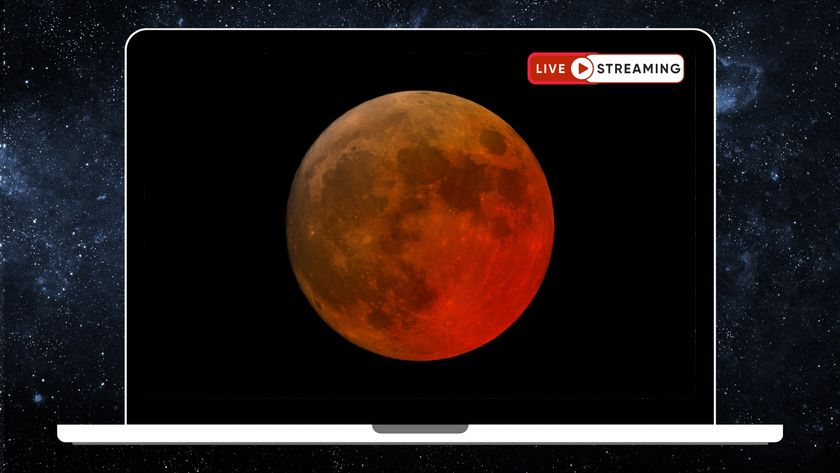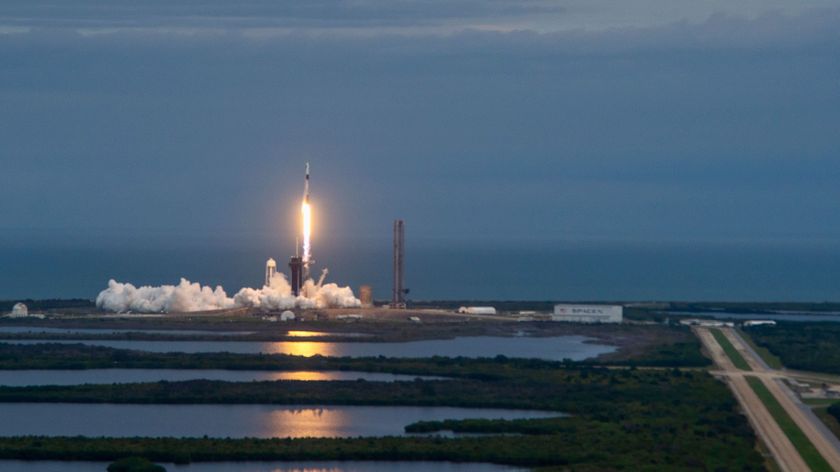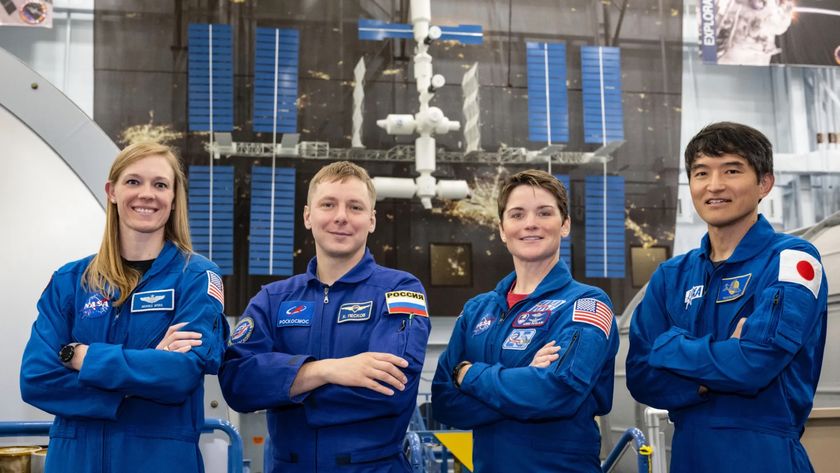Neptune Completes First Orbit Since Its Discovery in 1846
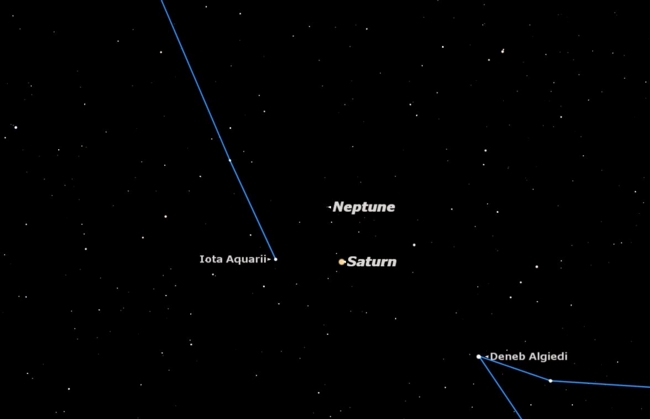
Tonight the planet Neptune completes its first trip around the sun since humans first discovered the gas giant planet.
Neptune is the only planet to have been discovered by mathematics. French astronomer Urbain Le Verrier noticed irregularities in the motions of other planets, and from these perturbations calculated that there must be an eighth planet lurking out beyond Uranus.
Using Le Verrier’s calculations, German astronomer Johann Galle at the Berlin Observatory located the new planet on Sept. 23, 1846.
Neptune's orbit is shaped roughly like an oval, with the planet taking about 165 years to complete a single circuit. The average distance between Neptune and the sun is nearly 2.8 billion miles (4.5 billion kilometers). That's roughly 30 times as far away as Earth.
On the night Galle discovered Neptune, it was just north of the planet Saturn in the constellation Aquarius. Tonight Neptune is back in Aquarius.
The sky maps available here show how Neptune appeared to astronomers when it was first seen in 1846, as well as how it appears tonight.
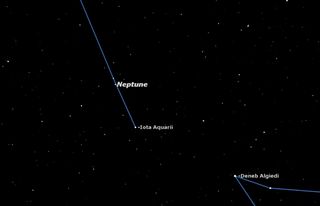
Why does Neptune appear to be in a different position tonight than it was in 1846? The answer is complicated and has been explained by Peter Jedicke of the Royal Astronomical Society of Canada.
Get the Space.com Newsletter
Breaking space news, the latest updates on rocket launches, skywatching events and more!
Writing in the RASC "Observer’s Handbook 2011," Jedicke explains that he used the International Celestial Reference Frame to determine that Neptune returns to the exact point in its orbit where it was discovered tonight at 22:27 Universal Time, or 6:27 p.m. Eastern Daylight Time.
Happy Birthday, Neptune!
This article was provided to SPACE.com by Starry Night Education, the leader in space science curriculum solutions. Follow Starry Night on Twitter @StarryNightEdu.
Join our Space Forums to keep talking space on the latest missions, night sky and more! And if you have a news tip, correction or comment, let us know at: community@space.com.

Geoff Gaherty was Space.com's Night Sky columnist and in partnership with Starry Night software and a dedicated amateur astronomer who sought to share the wonders of the night sky with the world. Based in Canada, Geoff studied mathematics and physics at McGill University and earned a Ph.D. in anthropology from the University of Toronto, all while pursuing a passion for the night sky and serving as an astronomy communicator. He credited a partial solar eclipse observed in 1946 (at age 5) and his 1957 sighting of the Comet Arend-Roland as a teenager for sparking his interest in amateur astronomy. In 2008, Geoff won the Chant Medal from the Royal Astronomical Society of Canada, an award given to a Canadian amateur astronomer in recognition of their lifetime achievements. Sadly, Geoff passed away July 7, 2016 due to complications from a kidney transplant, but his legacy continues at Starry Night.
